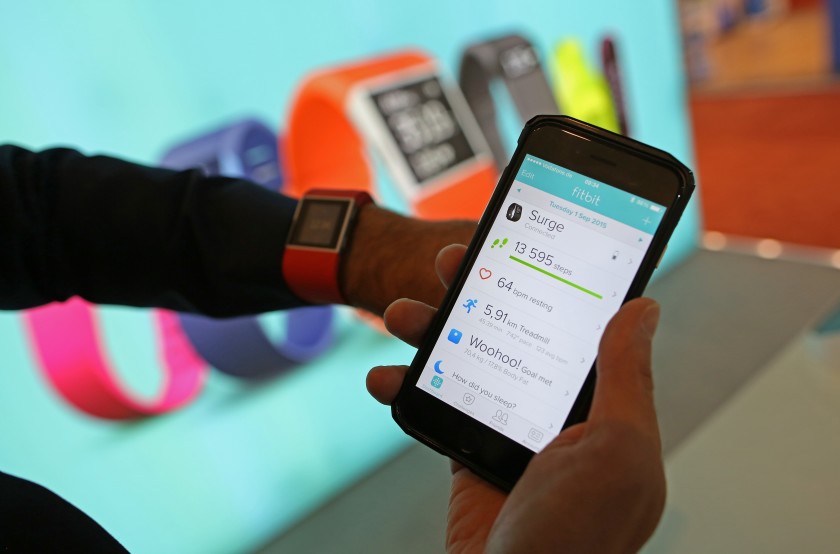James Park, co-founder and CEO of Fitbit, contends that while wearable fitness trackers started as “nice to have” consumer devices, they are fast becoming “must have” technology for managing health.
The company’s activity trackers, wireless-enabled wearable devices, measure data such as the number of steps walked, heart rate, quality of sleep, steps climbed, as well as other personal metrics involved in fitness.
“What’s really changed in the past few years is the realization that we’ve collected all this data and being able to do sophisticated analytics and data science on all this data,” Park told Thursday’s TIME 100 Health Summit in New York.
According to Park, Fitbit currently works with more than 100 health plans, including UnitedHealthcare, Humana and many of the regional Blues. “We’re a free covered benefit in 59 Medicare Advantage plans right now,” he commented. “If you’re a senior in one of these plans, you get a Fitbit for free.”
Park said Fitbit continues to expand its business into healthcare and is looking to help people manage more serious medical conditions such as diabetes and hypertension.

“We, today, just announced that we’re working with two of the largest pharmaceutical companies in the world in the BMS-Pfizer Alliance to help raise awareness, improve detection and the whole healthcare pathway around atrial fibrillation,” Park added.
According to Fitbit and the BMS-Pfizer Alliance, those who use wearables to track their heart rhythm may lack the education or guidance on what to do with the data gathered from their device. The goal of their partnership is to collaborate on the development of educational content and guidance to support people at increased risk for AFib.
Park makes the case that Fitbit’s “continuous, 24/7 on-wrist health tracking capabilities” and the, company’s “experience delivering personalized, engaging software and services” will enable the development of “content to help bridge the gaps that exist in atrial fibrillation detection, encouraging people to visit their doctor for a prompt diagnosis and potentially reduce their risk of stroke.”
Ultimately, once Food and Drug Administration clearance of the AFib detection software on the Fitbit devices is secured, the aim is to provide users with appropriate information to help encourage and inform discussions with their doctors.
Separately, Park also noted that the company’s products are in clinical trials for detecting sleep apnea.
“The more of these use cases that we can have, we think we can transform the idea of what we’re doing from a ‘nice to have’ to a ‘must have,’ ” he concluded. “If you can wear a device that can literally save your life, why wouldn’t everyone in the world wear one?”
